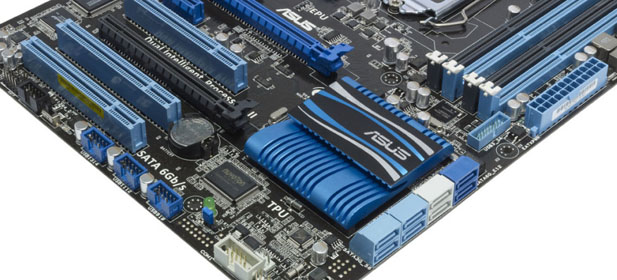
You Can't Tell The Retailers Not To Sell
Either way, the issue clearly had the potential to wipe out sales of a number of components. 'That's why people got worried in the marketplaces,' said one retailer. 'They almost let Intel come out with what they wanted to, but then over-rode the decision.'
In this case, over-riding the decision means deciding to sell Sandy Bridge kit against the best wishes of Intel and its OEM partners. At this point, it's worth noting that retailers and system builders appear to be perfectly within their rights to do this.
'Think about it,' said a spokesperson from one retailer. 'Intel can't stop somebody selling a product which is rightfully theirs. The product is legally owned by the customer or the e-tailer, so no matter what they've got a right to sell it.' A spokesperson from an OEM partner agreed, saying that 'we can't force the channel to do something that they don't want to do, because it would be illegal. We can't just phone up someone in the channel and tell them what to do – it's their choice. That's the bottom line – the customer is right – if the customer wants to do something then we'll support them as much as we can.'

Many motherboard makers claim that they've stopped shipping boards with 6-series chipsets, but you can't stop retailers from selling the stock that's already in the channel
The major players among Intel's OEM partners have issued statements saying that they'll swap out the faulty motherboards, and most have stopped shipping any motherboards based on the B2 silicon, and are now waiting for the B3 silicon revision before they start shipping new stock.
However, there's clearly still a great deal of stock still in the channel, and neither Intel nor the OEM partners have any control over what happens to this. They can offer a recall or refund service for customers, but they can't actually stop retailers from selling the products in the first place if they've already got them. 'I think a lot of the system integrators think that they'll just sell the systems now,' said one motherboard maker, 'and if there's a problem in the future they'll just use our RMA service to replace the board, I think that's what's happening.'
So why the big rush? Why can't we just wait until a couple of months until we've got the silicon fix? After all, the big players don't appear to be greatly affected by it, and those that are affected by it are going to have to wait for the fix anyway,
Elan Raja, director of UK retailer and system builder Scan, put it all down to market forces. 'On the day when the issue hit the market, we pulled everything, and when we pulled everything eBuyer followed suit, Dabs followed suit – the only company that didn't follow suit was Overclockers. So, all of a sudden, there was this mad rush of people thinking Overclockers had this magic chipset that the issue didn't affect, but that's not the case. So, therefore, everyone went live again on the basis that no one's willing to lose a sale.'
However, Raja also points out that any products based on Intel's 6-series chipsets that are sold after 31 January are now the liability of the retailer, as opposed to the OEM partner or even Intel.
'We've got systems we're selling, says Raja, 'but we're selling them with the knowledge that we've got a solution already in place. As the orders are coming in, we're actively contacting the customers and telling them that these are their options: they can either go for an Asus board with a Marvell chipset, they could have an additional SATA card added, or you can wait until a given date and we'll build you a system with the new revision of boards.'

Asus' P8P67 motherboard features four extra SATA ports via a Marvell controller, which retailers such as Scan are offering as a compromise to customers who want to get their hands on the kit as soon as possible
This also raises another question, of course, which is: 'What happens to all the old boards with the B2 silicon?' No one we asked was able to give us a solid answer to this, but the general consensus was that it wasn't possible to just resolder the new chips into the old boards on a mass-production basis. However, every motherboard maker we spoke to also said that it was unlikely that the boards would be entirely thrown away. Many of the components on the boards could be reused, but the remanufacturing process would take time. Either way, there's certainly going to be a fair amount of wastage occurring as a result of this situation.
In the meantime, Intel says it's going to start shipping the revised B3-stepping chipsets to its OEM partners this week, and samples of the new boards are expected to start appearing a couple of weeks later, with full production estimated to be back in full swing in April.
Interestingly, we've also heard a rumours from one of our sources that the revised B3-stepping silicon has in fact already been shipping for a while, and that the only reason it wasn't announced sooner was because of the hold-ups surrounding Chinese New Year. According to this source, new boards with the B3 silicon could even be available to buy in just a couple of weeks, although no other source was able to confirm this.

MSI MPG Velox 100R Chassis Review
October 14 2021 | 15:04









Want to comment? Please log in.